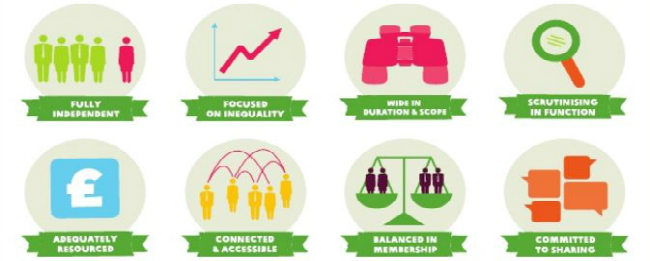In Scotland, one in five people live in poverty. At Oxfam Scotland, we know that if we’re going to bring that number down then we urgently need to address Scotland’s inequality problem. Poverty in Scotland is not an issue of scarcity; it is about how income and wealth are shared. This economic inequality feeds into and reinforces broader forms of inequality: between genders, generations, ethnic groups and between disabled people and others.
That’s why we’ve been campaigning since 2015 for an Inequality Commission to be created, to build on the welcome commitment of Scotland’s politicians – across all parties – to tackle inequality.
This week the Scottish Parliament voted unanimously to establish a Poverty and Inequality Commission, in law, through the Child Poverty (Scotland) Bill. This is great news and we hope it is a move that – over time – will produce a step-change in policy making to narrow the gap.
The Scottish Government had already established a non-statutory Commission and this existing Commission will operate for the next two years before becoming a statutory Commission in July 2019.
Being established in law means the Commission will be fully independent and report to Parliament. Crucially too for Oxfam, given the evidence that poverty and inequality are linked, the Scottish Government has committed to ensuring the Commission has a wide remit that encompasses both poverty and inequality, as well as child poverty in particular.
The Parliamentary vote in favour of this Commission follows months of campaigning by Oxfam and our supporters, as well as a number of anti-poverty organisations such as the Poverty Alliance and Barnardo’s. In fact, earlier this year, 37 organisations supported an open letter to party leaders calling for the Commission to be placed on a statutory footing. This letter also requested that each political party commit to setting out their own party’s
policies to achieve a fairer Scotland for the Commission to scrutinise. We hope this request will also now be acted upon.
Too often politics is characterised by division. However, politicians at Holyrood deserve great credit for the collaborative and constructive approach they have taken: from the Scottish Government bringing forward a position paper making clear the Commission would have a wide remit; to the opposition parties who’ve pushed to ensure the Commission is fully independent.
With support from across the political spectrum – as well as the third sector, Churches and Trade Unions – the Poverty and Inequality Commission offers an opportunity to make progress towards a society that is fairer for everyone. It’s an opportunity we must take.
